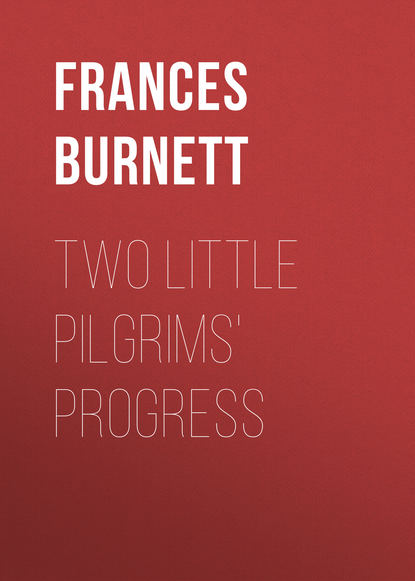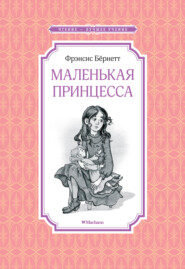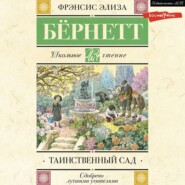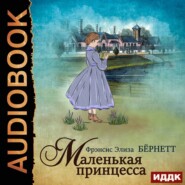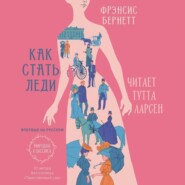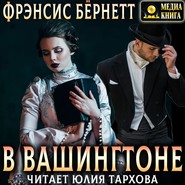По всем вопросам обращайтесь на: info@litportal.ru
(©) 2003-2024.
✖
Two Little Pilgrims' Progress
Настройки чтения
Размер шрифта
Высота строк
Поля
“I’ve promised Mr. Holt that I’ll let him take me through the Midway Plaisance,” she said. “I’ve seen the things I came to see, and I may as well get my ticket’s worth.”
Meg and Robin regarded her with interest. Aunt Matilda and the Midway Plaisance, taken together, would be such a startling contrast that they must be interesting. And as she looked at John Holt’s face, as they went on their way, Meg knew he was thinking the same thing. And it was a strange experience. Mrs. Jennings strode through the curious places rather as if she were following a plough down a furrow. She looked at Samoan beauties, Arab chiefs, and Persian Jersey Lilies with unmovedly scrutinizing eyes. She did not waste time anywhere, but she took all in as if it were a matter of business. Camel drivers and donkey boys seemed to strike her merely as samples of slow travelling; she ascended, as it were into mid-heaven, on the Ferris Wheel, with a grim air of determination. Being so lifted from earth and poised above in the clear air, Meg had thrilled with a strange, exultant feeling of being a bird, and it had seemed to her that, with a moment’s flutter of wings, she could soar higher and higher, and lose herself in the pure sea of blue above. Aunt Matilda looked down with cool interest.
“Pretty big power this,” she said to John Holt. “I guess it’s made one man’s fortune.”
John Holt was a generous host. He took her from place to place – to Lapland villages, Cannibal huts, and Moorish palaces. She tramped about, and inspected them all with a sharp, unenthusiastic eye. She looked at the men and women, and their strange costumes, plainly thinking them rather mad.
“It’s a queer sight,” she said to John Holt; “but I don’t see what good all this is going to do any one.”
“It saves travelling expenses,” answered John Holt, laughing. His shrewd, humorous face was very full of expression all the time they were walking about together. She had only come for the day, and she was going back by a night train. When she left them, she gave them both one of those newly appreciative looks.
“Well,” she said, “Mr. Holt’s going to look after you, he says. He’s got something to tell you when I’m gone. We’ve talked it over, and it’s all right. There’s one thing sure, you’re two of the luckiest young ones I’ve heard of.” And she marched away briskly.
Meg and Robin looked at each other and at John Holt. What was he going to tell them? But he told them nothing until they had all dined, and Ben and his mother had gone home, prepared to come again the next day.
By that time the City Beautiful was wreathed with its enchanted jewels of light again, and in the lagoon’s depths they trembled and blazed. John Holt called a gondola with a brilliant gondolier, and they got into it and shot out into the radiant night.
The sight was so unearthly in its beauty that for a few moments they were quite still. Meg sat in her Straw Parlor attitude, with her elbows on her knees, and her chin on her hands. Her eyes looked very big, and as lustrous as the jewels in the lagoon.
“I’m going to ask you something,” said John Holt, in a quiet sort of voice, at last.
“Yes,” said Meg, dreamily.
“Would you two like to belong to me?”
Meg’s hands dropped, and she turned her shining eyes.
“I’ve been talking to your Aunt Matilda about that big house of mine,” he went on. “It’s empty. There’s too much room in it. I want to take you two, and see if you can fill it up. Will you come?”
Meg and Robin turned their eyes upon each other in a dazed way.
“Will we come?” they stammered.
“Mrs. Jennings is willing,” said John Holt. “You two have things to do in the world. I’ll help you to learn to do them. You,” with the short laugh – “you shall tell me fairy stories.”
Fairy stories! What was this? Their hearts beat in their breasts like little hammers. The gondola moved smoothly over the scintillating water, and the jewel-strung towers and domes rose white against the lovely night. Meg looked around her, and uttered a little cry.
“Oh, Rob!” she said. “Oh, dear John Holt. We have got into the City Beautiful, and you are going to let us live there always.”
And John Holt knew that the big house would seem empty no more.
XX
It would have seemed that this was the climax of wonders and delights – to know that they had escaped forever from Aunt Matilda’s world, that they were not to be parted from John Holt, that they were to be like his children, living with him, sharing his great house, and learning all they could want to learn. All this, even when it was spoken of as possible, seemed more than could be believed, but it seemed almost more unbelievable day by day, as the truth began to realize itself in detail. What a marvellous thing it was to find out that they were not lonely, uncared-for creatures any more, but that they belonged to a man who seemed to hold all power in his hands! When John Holt took them to the big stores and bought them all they needed, new clothes and new trunks and new comforts, and luxuries such as they had never thought of as belonging to them, they felt almost aghast. He was so practical, and seemed to know so well how to do everything, that each hour convinced them more and more that everything was possible to him. And he seemed to like so much to be with them. Day after day he took them to their City Beautiful, and enjoyed with them every treasure in it. And they had so much time before them, they could see it all at rapturous leisure and ease. No more hungry hours, no more straining of tired bodies and spurring of weary feet, because there was so much to see and so little time to see it in, because there was so little money to be spent. There was time to loiter through palaces and linger before pictures and marvellous things. And John Holt could explain them all. No more limited and vague imaginings. There was time to hear everything, and Meg could tell fairy stories by the hour if she was in the mood. She told them in tropical bowers; she told them as they floated on the lagoon; she read them in strange, savage, or oriental faces.
“I shall have enough to last all my life, John Holt,” she would say. “I see a new one every half-hour. If you like, I will tell them all to you and Robin when you have nothing else to do.”
“It will be like the ‘Arabian Nights,’” said Robin. “Meg, do you remember that old book we had where all the leaves we wanted most were torn out, and we had to make the rest up ourselves?”
There was one story Meg found John Holt liked better than all the rest. It was the one about the City Beautiful, into which she used to follow Christian in the days when she and Robin lay in the Straw Parlor. It had grown so real to her that she made it very real and near in the telling. John Holt liked the way she had of filling it with people and things she knew quite well. Meg was very simple about it all, but she told that story well and often, when they were resting in some beautiful place alone. John Holt would lead her back to it, and sit beside her, listening, with a singular expression in his eyes. Ah, those were wonderful days!
Ben and his mother shared them, though they were not always with John Holt and Robin and Meg. John Holt made comfortable plans for them, and let them wander about and look their fill.
“It’s a great thing for him, Mr. Holt,” said the poor woman once, with a side glance at Ben. “Seems like he’s been born over again. The way he talks, when we go home at night, is as if he’d never be tired again as long as he lives. And a month ago I used to think he’d wear himself out, fretting. Seemed like I could see him getting thinner and peakeder every day. My, it’s a wonderful thing!”
And John Holt’s kindness did not end there, though it was some time before Meg and Robin heard all he had done. One day, when they had left the grounds earlier than usual, because they were tired, he spent the evening in searching out Ben’s disreputable father, and giving him what he called “a straight talk.”
“Look here,” he said, “I’m going to keep my eye on that boy of yours and your wife. I intend to make the house decent, and see that the boy has a chance to learn something, and take care they’re not too hard run. But I’m going to keep my eye on you too – at least, I shall see that some one else does – and if you make things uncomfortable you’ll be made pretty uncomfortable yourself, that’s all. I’d advise you to try the new recreation of going to work. It’ll be good for your health. Sort of athletics.”
And he kept his word.
It was a marvel of a holiday. It is not possible that among all the holiday-makers there were two others who were nearer the rapture of Paradise than these two little Pilgrims.
When it was at an end they went home with John Holt. It was a wonderful home-going. The house was a wonderful house. It was one of the remarkable places that some self-made western men have built and furnished, with the aid of unlimited fortunes and the unlimited shrewd good sense which has taught most of those of them whose lives have been spent in work and bold ventures that it is more practical to buy taste and experience than to spend money without it. John Holt had also had the aid and taste of a wonderful little woman, whose life had been easier and whose world had been broader than his own. Together they had built a beautiful and lovable home to live in. It contained things from many countries, and its charm and luxury might well have been the result of a far older civilization.
“Don’t you think, Robin,” said Meg, in a low voice, the first evening, as they sat in a deep-cushioned window-seat in the library together, “don’t you think you know what She was like?”
They had spoken together of her often, and somehow it was always in a rather low voice, and they always called her “She.”
Robin looked up from the book he held on his knee. It was a beautiful volume She had been fond of.
“I know why you say that,” he said. “You mean that somehow the house is like her. Yes, I’m sure it is, just as Aunt Matilda’s house is like her. People’s houses are always like them.”
“This one is full of her,” said Meg. “I should think John Holt would feel as if she must be in it, and she might speak to him any moment. I feel as if she might speak to me. And it isn’t only the pictures of her everywhere, with her eyes laughing at you from the wall and the tables and the mantels. It’s herself. Perhaps it is because she helped John Holt to choose things, and was so happy here.”
“Perhaps it is,” said Robin; and he added, softly, “this was her book.”
They went once more to Aunt Matilda’s world. They did it because John Holt wanted to see the Straw Parlor, and they wanted to show it to him and bid it good-by.
Aunt Matilda treated them with curious consideration. It almost seemed as if she had begun to regard them with respect. It seemed to her that any business-like person would respect two penniless children who had made themselves attractive to a man with the biggest farm in Illinois, and other resources still larger. They went out to the barn in their old way, when no one knew where they were going, and when no one was about to see them place their ladder against the stack, and climb up to the top. The roof seemed more like a dark tent than ever, and they saw the old birds’ nests, which by this time were empty.
“Meg,” said Robin, “do you remember the day we lay in the straw and told each other we had got work? And do you remember the afternoon I climbed up with the old coffee-pot, to boil the eggs in?”
“And when we counted the Treasure?” said Meg.
“And when we talked about miracles?” said Robin.
“And when it made me think human beings could do anything if they tried hard enough?” said Meg.
“And when you read the ‘Pilgrim’s Progress’?” said John Holt.
“And the first afternoon when we listened to Jones and Jerry, and you said there was a City Beautiful?” said Meg.
“And there was,” said Robin, “and we’ve been there.”
“It was just this time in the afternoon,” said Meg, looking about her; “the red light was dying away, for I could not see to read any more.”
And for a little while they sat in the Straw Parlor, while the red light waned; and afterwards, when they spoke of it, they found they were all thinking of the same thing, and it was of the last day they had spent at the Enchanted City, when they had gone about together in a strange, tender, half-sad mood, loitering through the white palaces, lingering about the clear pools of green sea water, where strange creatures swam lazily or darted to and fro, looking their last at pictures and stories in marble, and listening to the tinkle of water plashing under great tropical leaves and over strange mosses, strolling through temples and past savage huts, and gazing in final questioning at mysterious, barbarous faces; and at last passing through the stately archway and being borne away on the waters of the great lake.





